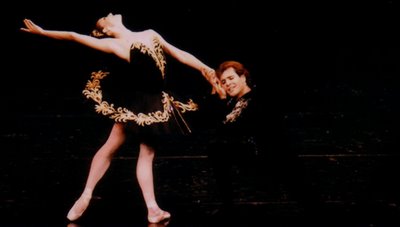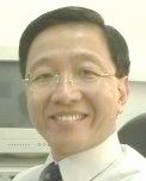
This coming Sunday (29 Oct), I will
balik kampung to my lovely hometown Ipoh to join an opposition
Parti KeADILan Rakyat (PKR) public forum with its Vice President and UK-trained heart specialist Dr. Lee Boon Chye (李文材医生) as well as PKR's Perak youth leader accountant Vincent Chun (郑永森会计师) and to explore the theme of Chinese Malaysian politics in a fast-changing multiethnic society.
The public forum is going to be held at the premise of the Yuk Choy Old Boys' Association at 13A, Jalan Chung On Siew. For more information, please call Ginie Lim: 012-6693453
I have personally known Dr. Lee Boon Chye (
picture above) since the days of the
Reformasi when we often seriously discussed the changing situations and the short-, middle- and long-run implications for the Chinese Malaysian community in a multiethnic nation. Finally, he was convinced by Ireland-trained eye specialist Dr. Wan Azizah Wan Ismail to join the then newly inaugurated
Parti KeADILan Nasional (PKN) which has become
Parti KeADILan Rakyat (PKR) after the successful merger with
Parti Rakyat.
I once asked him why did he, being a successful man in private life and professional career, not join the Chinese-based ruling parties such as MCA, he said it would have wasted his youth and life because these parties have long lost their governing capability and political integrity as they are essentially window-dressing puppets of Umno.
For him, political participation is a loss-making moral committment, not profit-generating business investment.
Like me, Dr. Lee is also trilingual and we essentially and firmly agree that while we must unapologetically defend the legitimate rights, dignity and honour of the Chinese (as well as Indian, Iban, Kadazan, Eurasian and
Orang Asli) community, we must also empathise with the genuine hope and aspiration of the ordinary Malays and not to mix them up conceptually or emotionally with the
Umnoputras who marginalise not only the non-Malays but also many non-Umno Malays.
Not being an unprincipled populist, Dr. Lee is often statesmanly enough to speak or write in the Chinese-language to promote inter-ethnic and inter-religious mutual respect. Civilisational dialogue is, for him, not lectures to be conducted only within universities but also a daily committment and practice in the streets.
Meanwhile, I will also seize the opportunity to go home and enjoy the herbal soup cooked by mother for her son who has, unfortunate for her, become a public property since that fateful day of 27 October, 1987. I will also tell her more stories about my trip to Guangzhou.
Interview with Dr. Lee Boon Chye (in Chinese)http://www.malaysiakini.com/columns/41997NEP beyond doubt a elitist class instrumenthttp://www.malaysiakini.com/letters/58462NEP will destroy the Malayshttp://www.malaysiakini.com/news/57563Nation in hands of 'school kids'http://www.malaysiakini.com/news/57607Time for a non-race based agendahttp://www.sun2surf.com/article.cfm?id=12510Anwar: Time to suspend NEPhttp://www.malaysiakini.com/news/42419Scrap NEP: Anwar’s message to votershttp://www.malaysiakini.com/news/43641Bumiputera privileges must end, says Anwarhttp://www.malaysiakini.com/news/38414
 Not too long after I arrived at my hometown Ipoh in the evening of 29 Oct (Sun), I attended a Parti KeADILan Rakyat's public forum on the New Economic Policy (NEP) and the direction (or the lack of it) of the state of Malaysian political economy held at the premise of Yuk Choy Old Boys' Association as an independent guest speaker. The 98-year old Yuk Choy is the oldest Chinese-language school in Ipoh.
Not too long after I arrived at my hometown Ipoh in the evening of 29 Oct (Sun), I attended a Parti KeADILan Rakyat's public forum on the New Economic Policy (NEP) and the direction (or the lack of it) of the state of Malaysian political economy held at the premise of Yuk Choy Old Boys' Association as an independent guest speaker. The 98-year old Yuk Choy is the oldest Chinese-language school in Ipoh.












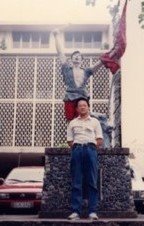




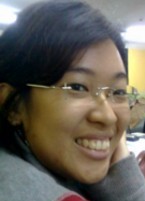
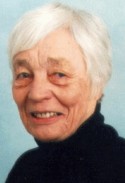
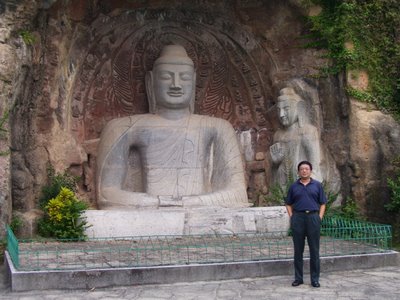
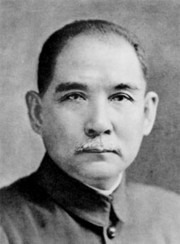










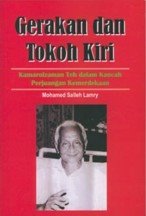 After the article In memory of Kamarulzaman Teh, freedom fighter written by this blogger had been published in malaysiakini two days ago, some additional thoughts or reflections have surfaced in my mind on the posthumous biography authored by Dr. Mohamed Salleh Lamry. Allow me to amend the last paragraph in the published review and add six supplementary ones to read:
After the article In memory of Kamarulzaman Teh, freedom fighter written by this blogger had been published in malaysiakini two days ago, some additional thoughts or reflections have surfaced in my mind on the posthumous biography authored by Dr. Mohamed Salleh Lamry. Allow me to amend the last paragraph in the published review and add six supplementary ones to read:





